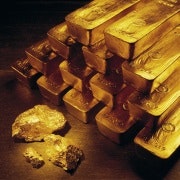ASHES: Australia clubs its way toward redemption
Old Trafford, Manchester, England — Michael Clarke did not have time to spare to grind England into the green ground at Old Trafford. In earlier times, when Australia’s batsmen were scoring at will, they would bully their way past 600. When Clarke declared 14 minutes past tea, Australia’s total was 'only' 527 for 7.
If they are to retain an interest in this Ashes series it is imperative that they win this game. This means taking 20 England wickets in three days plus 30 overs this evening on a wicket still playing so well that Australia simply cannot waste the time taken to push the score past 600. Bobby Simpson did so here in 1964, when he scored a triple century, and the match was drawn. A draw now means that England retain the Ashes.
Clarke’s strategy finally worked when he called on the fifth bowler at his disposal. The opening pair of Ryan Harris and Mitchell Starc failed to make the breakthrough. Shane Watson was economical but not particularly threatening. The most dangerous spell had been bowled by the off spinner Nathan Lyon, who had been brought on as early as the seventh over. Clarke did not turn to Peter Siddle until England had survived 21 overs, and by the close he had taken two wickets in five overs for seven runs. England ended the day on 52 for 2, 475 behind. It has been Australia’s day.
Siddle pitched the ball up to Joe Root, who had poked around for 96 minutes. Root mistakenly played back and feathered a catch to Brad Haddin, having scored a meagre eight runs. With eight overs still to play, Tim Bresnan came in as nightwatchman, as he had done at Lord’s, and in the 28th over he played an ugly defensive poke. The keeper, the slips and Siddle himself appealed confidently for a catch behind the wicket. After consulting Alastair Cook, Bresnan decided not to review. It proved to be another error; the replays showed the ball had hit his pocket not his bat.
Before Siddle’s crucial intervention, the principal threat to England’s openers was Lyon, who had been brought on by Clarke in the seventh over. It was an ingenious move, and it nearly came off brilliantly in Lyon’s first over when Cook edged the ball onto the keeper’s glove and it ballooned up towards first slip. Clarke, diving forward, almost got to it; had he done so this would have come high in the captain’s unique catalogue of successful speculative bowling changes.
Lyon had been selected in place of Ashton Agar, who had batted better than he bowled in the first two Tests. Having been engaged as a groundsman at the Adelaide Oval, the local coaches decided Lyon would be more useful to South Australia playing rather than preparing. He was awarded his Baggy Green in 2011 and, at 25, he has taken 76 wickets in 22 Tests. Today he made the selection of Agar look like an engaging error.
Slim, with thinning hair, Lyon buttons his shirtsleeves at the wrist. There is a flurry of arms and legs as he delivers the ball. Root was quite bemused, and the most surprising thing about the 10 overs he bowled was that he did not take a wicket. He was good news for Australia; the bad news was that Ryan Harris left the field, though it turned out he was feeling poorly, not nursing another injury. He will bowl tomorrow.
Australia had already eradicated the word “pushover” from the vocabulary of this series. Record-breaking partnerships of 214 between Clarke and Steve Smith and 97 between Haddin and Starc were Australia’s highest at Old Trafford for the 4th and 8th wickets. These significant contributions had been punctuated by the miniature melodrama of David Warner’s return to Test cricket. Having served a brief punishment in South Africa (remember: he had hit out at Root in a bar in the early hours), Warner entered the arena when Smith was out for 89, having an ugly and uncharacteristic slog to mid-wicket.
Warner was booed loudly by English spectators as he entered, and his brief role ended after he had insisted on reviewing the umpire’s decision to give him out caught at slip via the keeper’s thigh. For a change, the umpire’s decision was entirely correct. TV replays exposed a decisive edge, and Warner was booed, no less loudly, all the way back to the dressing room.
Clarke, batting with even greater freedom than on the previous day, moved elegantly from 125 overnight to within 13 runs of his double hundred. It came as a shock when he tried to glide a delivery outside the leg stump to third man and played the ball onto his stumps. His memorable 187 contained 23 fours and took seven hours and 22 minutes, and it makes the restoration of Australia’s reputation as a Test team a possibility. The third day ought to tell us how likely it is.
Stephen Fay is a former editor of Wisden and author of books about the Bank of England and the collapse of Barings.
















